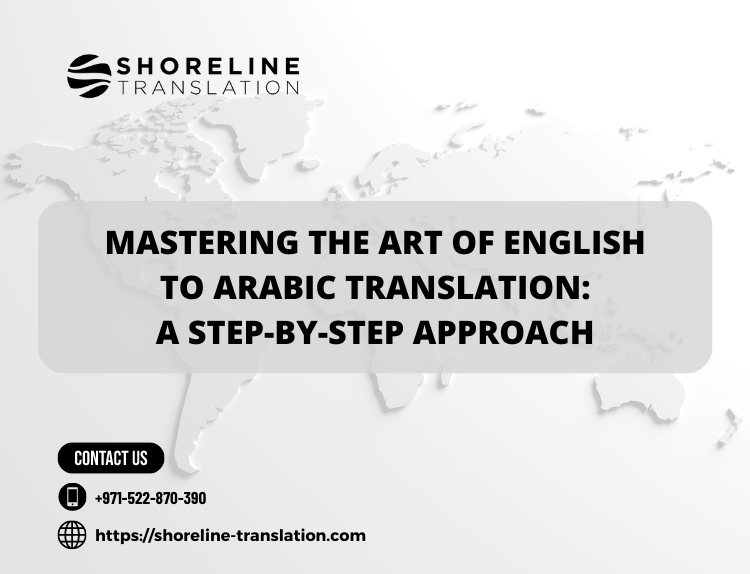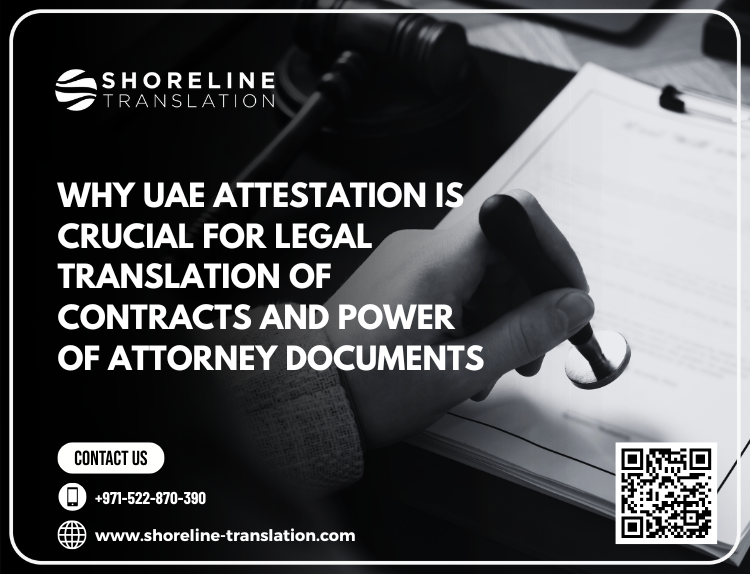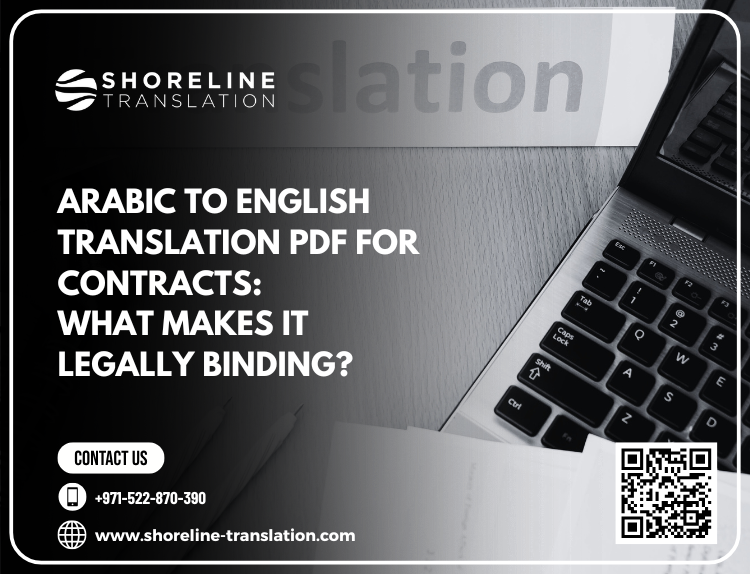Table of Contents
ToggleMastering the Art of English to Arabic Translation: A Step-by-Step Approach
Are you ready to embark on a linguistic journey that will open doors to new cultures and opportunities? Look no further than the fascinating world of English to Arabic translation! Whether you’re an aspiring translator, a language enthusiast, or simply in need of accurate translations for business or personal purposes, this blog post has got you covered.
Translating from English to Arabic can be both challenging and rewarding. With over 420 million native speakers worldwide, Arabic is one of the most widely spoken languages across various continents. Its rich history, intricate grammar rules, and unique cultural nuances make it an art form in itself. But fear not! With the right techniques and resources at your disposal, you’ll soon become a master of bridging these two distinct linguistic realms.
In this comprehensive guide, we’ll delve into the intricacies of translating from English to Arabic step by step. We’ll explore how translation works between these languages, discuss strategies for maintaining accuracy and tone, provide valuable tools and resources for your translation endeavors, address frequently asked questions about the process, share best practices for mastering this skillset like a pro…and much more!
So grab your pen (or keyboard) and get ready to unlock endless possibilities with our ultimate guide on mastering the art of English to Arabic translation. Let’s dive in!

Understanding English to Arabic Translation
English to Arabic translation is like embarking on a linguistic adventure, where words and concepts magically transform into a whole new realm of meaning. It’s not simply about substituting one word for another; it’s about capturing the essence of the message in a way that resonates with Arabic-speaking audiences.
The process involves more than just knowing the vocabulary and grammar rules. It requires an understanding of cultural nuances, idiomatic expressions, and historical context to ensure accurate and effective communication. By diving deep into both languages’ intricacies, translators can bridge the gap between these two fascinating worlds, opening doors to endless possibilities. So let’s unravel this captivating journey together!
How does English to Arabic translation work?
English to Arabic translation is a fascinating process that brings two languages and cultures together. So, how does it work? Well, it’s not just about replacing words with their Arabic equivalents. It requires a deep understanding of both languages and the ability to capture the essence of the original text while adapting it for an Arabic-speaking audience.
In this artful dance between languages, translators carefully choose words and phrases that convey the intended meaning without losing any nuances or cultural context. They consider sentence structure, grammar rules, and even regional variations to provide an accurate translation that resonates with Arab readers. It’s like solving a linguistic puzzle where every piece must fit perfectly to create a seamless transition from English to Arabic.
Accuracy of English to Arabic translation
When it comes to English to Arabic translation, accuracy is of utmost importance. The challenge lies in capturing the true essence of the original text while conveying it seamlessly in Arabic. Each word and phrase must be carefully chosen and translated, considering cultural nuances and linguistic intricacies.
Arabic is a rich language with its own unique grammar rules and sentence structure. Translators need to have a deep understanding of both languages to ensure accurate translations. A single misplaced word or incorrect interpretation can completely alter the meaning intended by the original author.
To achieve accuracy, translators must possess excellent language skills, cultural knowledge, and research abilities. They should constantly strive for perfection by double-checking their work, consulting dictionaries and reference materials when needed. Accuracy ensures that the final translation resonates with native Arabic speakers as if it was originally written in their language.
Remember: Accurate translations require meticulous attention to detail along with an appreciation for linguistic diversity! So let’s dive into this fascinating world of English to Arabic translation techniques together!
Techniques for Translating from English to Arabic
Translating from English to Arabic is no easy task. It requires a deep understanding of both languages and their unique grammar structures. But fear not, some techniques can help you master this art!
It’s important to familiarize yourself with commonly used phrases in English to Arabic translation. This will save you time and ensure accuracy in your translations. Additionally, pay close attention to maintaining the tone and meaning of the original text. Arabic is a rich language with various dialects, so choose the appropriate style for your translation.
Make use of tools and resources specifically designed for English to Arabic translation. The Shoreline Agency offers professional services that guarantee accurate translations by native speakers. These experts have an in-depth knowledge of both languages and cultural nuances.
By incorporating these techniques into your approach, you’ll be well on your way to mastering the art of translating from English to Arabic! So don’t hesitate – start practicing today and watch as your skills flourish!
Commonly used phrases in English to Arabic translation
English to Arabic translation can be a complex task, especially when it comes to capturing the essence of commonly used phrases. One such phrase is “Thank you”, which in Arabic is translated as “Shukran”. This simple yet powerful expression conveys gratitude and appreciation.
Another frequently used phrase is “Hello”, which translates to “Marhaba” in Arabic. It’s a warm and friendly greeting that sets the tone for conversations. Whether you’re meeting someone for the first time or reconnecting with an old friend, using this phrase creates an instant connection.
Mastering these commonly used phrases in English to Arabic translation opens up a world of opportunities for effective communication. So next time you find yourself needing to express gratitude or greet someone in Arabic, remember these translations and watch as your language skills bridge cultural gaps effortlessly!
Strategies for maintaining the tone and meaning in English to Arabic translation
Maintaining the tone and meaning in English to Arabic translation is no easy feat. It requires a deep understanding of both languages, as well as cultural nuances. One strategy is to focus on context. By carefully considering the context of the original text, translators can better capture its intended tone and convey it accurately in Arabic.
Another effective strategy is to use idiomatic expressions and figures of speech that are commonly used in Arabic. This not only helps preserve the meaning of the original text but also gives it an authentic touch. Translators must be mindful of not only translating words but also capturing their essence and impact.
By employing these strategies, translators can ensure that the translated content maintains its intended tone and meaning, making it accessible and compelling for Arabic-speaking audiences.
Tools and Resources for English to Arabic Translation
Tools and resources are invaluable when it comes to mastering the art of English to Arabic translation. With advancements in technology, there are numerous options available that can make your translation process smoother and more efficient.
Online translation tools like Shoreline Agency provide professional English to Arabic translation services. Their team of experienced translators ensures accuracy and maintains the integrity of tone and meaning in your translations. These services save you time and effort, allowing you to focus on other aspects of your work.
In addition to professional agencies, there are also free online tools for English to Arabic translation available. While they may not be as accurate as human translators, they can still aid in understanding basic phrases or sentences. However, it’s important to note that relying solely on these tools may result in inaccuracies or misinterpretations due to linguistic nuances between English and Arabic. Therefore, using them with caution is advised.
Utilizing the right tools and resources is essential for successful English to Arabic translations. Whether you opt for professional agencies or free online tools, choose wisely based on your specific needs and always prioritize accuracy while maintaining the intended tone and meaning behind every word!
Shoreline Agency for English to Arabic Translation Services
Looking for top-notch English to Arabic translation services? Look no further than Shoreline Agency! With their team of skilled translators and deep understanding of both languages, they deliver accurate and high-quality translations every time.
At Shoreline Agency, they go the extra mile to ensure that your translation needs are met with precision. Their experienced translators not only have a strong command of both English and Arabic but also possess cultural fluency, ensuring that the translated content is culturally appropriate and effectively conveys the intended message.
With their commitment to excellence, attention to detail, and dedication to meeting deadlines, Shoreline Agency is your trusted partner for all your English to Arabic translation needs. Whether you require document translations, website localization, or any other language-related services, Shoreline Agency has got you covered!
Frequently Asked Questions about English to Arabic Translation
Is there a free English to Arabic translation service available?
Well, the internet is full of various online translation tools that claim to offer free translations. However, it’s important to note that when it comes to accurate and reliable translations, these free services may not always be the best choice. They often lack contextual understanding and can produce incorrect or nonsensical translations.
Can English to Arabic translations be downloaded?
Yes! Many translation apps and websites offer downloadable versions of their software for offline use. This can be especially useful if you’re traveling or in an area with limited internet access. Just make sure to choose a reputable source for your downloads and double-check the accuracy of the translations before relying on them.
What is the most accurate English to Arabic translation tools?
While there are many options available, it’s crucial to choose a trusted and professional agency like Shoreline Agency for your English to Arabic translation needs. These agencies have experienced translators who understand both languages intricately and ensure accuracy in every translated document. By partnering with professionals, you can rest assured that your content will maintain its intended meaning while being culturally appropriate for an Arab-speaking audience.
Remember, investing in high-quality language services is essential when bridging communication gaps between different cultures.
Is there a free English to Arabic translation service available?
You may be wondering if there’s a free English to Arabic translation service available out there. Well, the good news is that yes, you can find some online tools that offer this service for free! These tools allow you to translate text from English into Arabic with just a few clicks.
However, it’s important to keep in mind that while these free translation services can be helpful for basic translations, they may not always provide accurate or nuanced results. Especially when it comes to translating complex texts or industry-specific terminology, relying solely on a free tool might not give you the level of accuracy and quality you need.
So, if you’re looking for professional and reliable English to Arabic translation services that guarantee accurate and culturally appropriate translations, it’s best to consider working with a reputable agency like Shoreline Agency. They have experienced translators who specialize in English to Arabic translation and ensure high-quality results every time.
Can English to Arabic translations be downloaded?
Can English to Arabic translations be downloaded? This is a question that often comes up when it comes to language translation. The good news is, yes, you can download English to Arabic translations! With the advancement of technology and online platforms, there are now various tools and resources available that allow you to download translated content in different formats.
One popular option is using translation software or apps that offer downloadable files for offline use. These programs not only provide accurate translations but also allow you to save them on your device for easy access anytime, anywhere. Additionally, many professional translation services also offer the option to download translated documents directly from their websites or through email attachments.
So whether you need a translated document for personal use or business purposes, downloading English to Arabic translations has never been easier. Just make sure to choose reliable tools and services that guarantee accuracy and quality in their output. Happy translating!
What is the most accurate English to Arabic translation tools?
When it comes to translating from English to Arabic, accuracy is key. Thankfully, there are several tools available that can assist in achieving precise translations.
One of the most accurate translation tools for English to Arabic is Google Translate. With its vast language database and advanced algorithms, it offers reliable translations across a wide range of content. Another popular option is Microsoft Translator, which uses artificial intelligence and machine learning techniques to deliver accurate results.
In addition to these widely-used tools, there are also specialized translation software programs like SDL Trados Studio and MemoQ that cater specifically to professional translators. These tools provide customizable features and industry-specific terminology databases, ensuring the utmost accuracy in your translations.
Remember though, while these tools can be incredibly helpful, they should always be used as aids rather than substitutes for human expertise. Always rely on the skills of a professional translator or agency for complex or sensitive projects where precision matters most.
In-Depth Comparison of English to Arabic Translation Services
When it comes to English to Arabic translation services, there are plenty of options out there. But how do you know which one is the best fit for your needs? Let’s take an in-depth look at some of the top contenders.
First up, we have Shoreline Agency for English to Arabic Translation Services. With their team of expert linguists and a track record of delivering high-quality translations, they are a reliable choice. Their attention to detail and commitment to accuracy makes them stand out from the crowd.
Another contender worth considering is Language Connect. They offer a wide range of language services, including English to Arabic translation. Their focus on customer satisfaction and quick turnaround times set them apart in this competitive field.
Both Shoreline Agency and Language Connect have their unique strengths and weaknesses, so it ultimately depends on your specific requirements when making a decision.
Best Practices for Mastering English to Arabic Translation
Continuous practice and exposure to the Arabic language and culture are key to mastering English to Arabic translation. Immerse yourself in Arabic literature, music, and movies to familiarize yourself with the nuances of the language. Engage in conversations with native Arabic speakers or join online communities where you can interact with others who share your passion for translation.
Seeking feedback and guidance from native Arabic speakers is another essential practice. They can provide valuable insights into cultural context, idiomatic expressions, and regional variations that may not be apparent when translating independently. Embrace their expertise as they help refine your skills.
Stay updated with the latest industry terminology and language trends in Arabic by reading news articles, and journals, or attending workshops and conferences. This will ensure that your translations are accurate, up-to-date, and resonate well with the target audience.
Remember: Practice makes perfect! Keep honing your translation skills while staying open-minded to new linguistic possibilities. With dedication and perseverance, you’ll soon become a master at English to Arabic translation!
Continuous practice and exposure to the Arabic language and culture
Continuous practice and exposure to the Arabic language and culture are crucial steps in mastering English to Arabic translation. To truly understand the nuances of this complex language, immerse yourself in its rich cultural heritage. Surround yourself with native speakers, whether through language exchange programs or online communities. Engage in regular conversations with them, listening carefully to their pronunciation and intonation. This will help you develop an ear for the natural flow of Arabic speech.
Additionally, make a habit of reading books, articles, and news written in Arabic. This will expose you to different writing styles and vocabulary used in various contexts. Through extensive reading, you’ll become familiar with common phrases and idioms which play a significant role in accurate translation. Moreover, watching movies or TV shows with Arabic subtitles can improve your comprehension skills while also exposing you to colloquial expressions that might not be found in formal texts.
Remember that mastering any language is a journey that requires patience and consistent effort. The more time you dedicate to practicing spoken communication and immersing yourself in Arabic culture, the better equipped you’ll be as an English to Arabic translator! So embrace every opportunity available – from attending local cultural events to traveling abroad – as these experiences will deepen your understanding of both the language itself and its cultural context.
Seeking feedback and guidance from native Arabic speakers
One of the most effective ways to master English to Arabic translation is by seeking feedback and guidance from native Arabic speakers. These language experts offer invaluable insights into the nuances, idioms, and cultural references that are often lost in translation. Their expertise can help you ensure accuracy and maintain the intended tone of your translations.
Engaging with native Arabic speakers not only helps you improve your language skills but also enables you to gain a deeper understanding of the culture, customs, and context behind the words. By actively seeking their feedback on your translations, you can refine your skills and bridge any gaps in cultural understanding. So don’t hesitate to reach out for assistance; their knowledge will take your translation game to new heights!
Staying updated with the latest industry terminology and language trends in Arabic
Staying updated with the latest industry terminology and language trends in Arabic is essential for mastering the art of English to Arabic translation. To provide accurate and contextually relevant translations, translators must continuously immerse themselves in the ever-evolving world of language. This means keeping a vigilant eye on new vocabulary, idiomatic expressions, and cultural nuances that shape modern Arabic communication.
One effective way to stay ahead is by actively engaging in professional development opportunities such as attending conferences or webinars focused on language trends in the Arab world. Additionally, subscribing to reputable linguistic journals or joining online communities can provide valuable insights into emerging terminologies and evolving language usage patterns. By staying informed about industry-specific words and phrases, translators can ensure their translations are not only accurate but also up-to-date with current linguistic conventions. So keep an ear to the ground (or rather, an eye on your screen) for fresh developments – it’s all part of becoming a master translator!
Conclusion
Becoming proficient in English to Arabic translation is a valuable skill that can open up countless opportunities for communication and understanding. By following the step-by-step approach outlined in this article, you can master the art of translating from English to Arabic with accuracy and finesse.
Understanding the nuances of both languages is crucial for successful translation. By delving into the structure, grammar, and cultural context of each language, you will be better equipped to navigate through the complexities of translation.
Incorporating techniques such as using commonly used phrases and strategies for maintaining tone and meaning will elevate your translations to new heights. These methods ensure that your translated texts resonate with native Arabic speakers while staying true to the original message.
Utilizing tools like Shoreline Agency’s professional English to Arabic translation services can enhance your translations even further. Their team of experienced translators understands the intricacies of both languages, providing accurate translations tailored to specific industries or fields.
While there may be free online translation services available, it’s important to remember that they often lack accuracy and precision. Investing in reliable resources guarantees high-quality translations every time. Stay updated on industry terminology and seek feedback from native speakers for continuous improvement.
To truly master English to Arabic translation, immerse yourself in Arab culture by practicing regularly with native speakers, seeking guidance when necessary, and staying current with language trends. This dedication ensures that your translations are relevant and impactful within today’s ever-evolving linguistic landscape.
Now armed with these insights and best practices, you have all the tools needed to embark on a journey towards mastering English to Arabic translation! Open doors not only for effective communication but also for building bridges between cultures – because words have immense power when translated accurately!
So go forth confidently into this world where two beautiful languages meet – translate English (to) Arabic writing!





